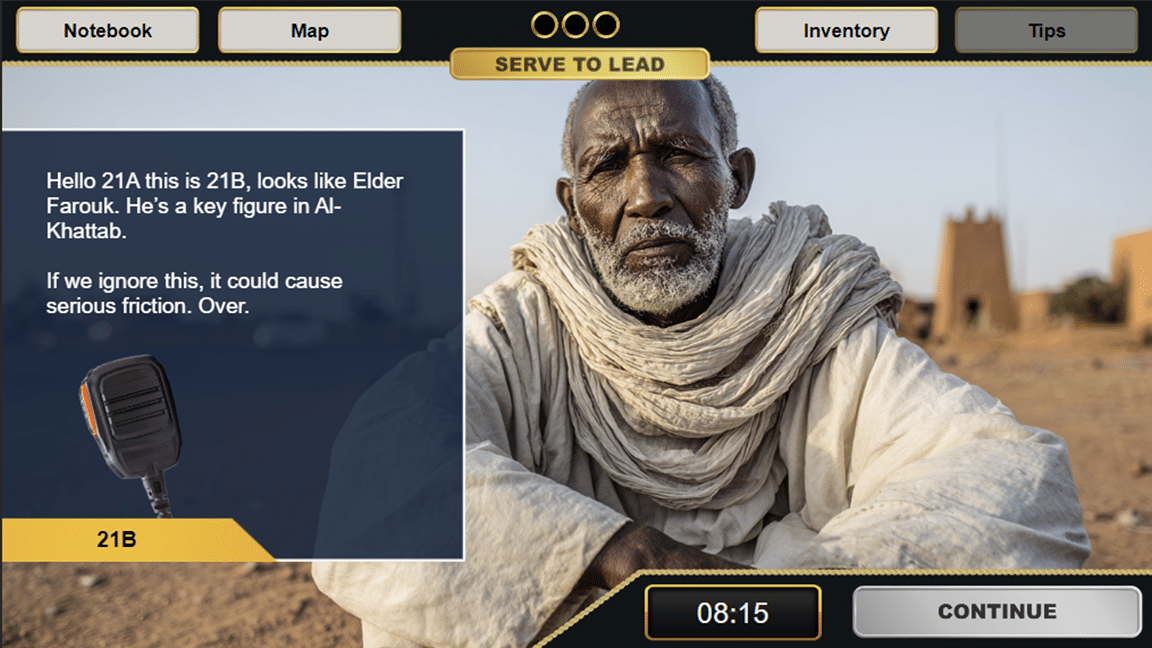Award Won!
Best Social Media Crowdsourcing Game

Serve to Lead Game Series
British Army
Serve to Lead is a bespoke digital training game developed for the Royal Military Academy Sandhurst (RMAS) in partnership with CDS Defence & Security. Designed as a pick-your-own-adventure branching narrative, it immerses Officer Cadets in the role of a newly appointed Platoon Commander. Across a 45-minute online scenario, players confront real-world inspired situations spanning welfare, discipline, harassment reports, and human rights dilemmas, in both barracks and deployed environments. Each playthrough concludes with a face-to-face facilitated session, allowing Instructing Staff to consolidate lessons and tailor discussion according to the individual needs and performance of the players. By combining immersive digital play with structured reflection, Serve to Lead provides a scalable and innovative method of enhancing ethical decision-making, leadership competence, and officer development.
